In Islamic Revivalist thought, the concept of Gradualism is the belief amongst Muslim revivalists that the method to re-establish Islamic government (Khilafah) lies in a gradual (re-)implementation of Islam in a Muslim country. Gradualists typically achieve this by seeking to gain power in a system, and gradually phase out of the pre-existing political system until the full implementation of the Islamic system has been achieved.
However, this pragmatic approach, represents a shallow way of thinking – looking at how to carve out a niche for Islam in the current reality, instead of how to carve the current reality to fit the Islamic niche. Therefore it is common to notice that gradualists make the status quo the object of their thinking, not the subject of their thinking.
The shallow thinking that leads people to employ gradualism, creates a fundamental lack of understanding about the reality of human society, ideology, geo-politics and Islam.
Understanding how to change a Human Society
The first mistake made by gradualists, is an inaccurate understanding of human society. All human societies are based upon transactions of its members seeking their needs. In order for society to be effective, all transactions are regulated by a common set of agreed values (Arabic: furqan) for determining permissible actions, prohibitions, forms of communication and expectations of duty. This is called a ‘way of life’ (Arabic: Deen), or ‘culture’. A way of life can derive from either tradition, imitation of external civilisations, or from a worldview/belief, or a combination of all three. Since some individual humans may act against their own culture, each society will create Laws to preserve some aspects of their way of life necessary for the preservation of social order. Law will be preserved by a specialist faction of that society devoted to the preservation of order in society. This is the ‘Enforcement faction’ (e.g. Military, Police or in ancient times, most male members of a tribe), and they generally possess a monopoly on the application of force. The ‘Enforcement faction’ generally underwrites the ruler(s) of a society, and no ruler can possess power without their consent, or the consent of their commanders, These Commanders are the ‘kingmakers’ (in Arabic they are called the ‘Ahl Hal wa Aqd’).
Gradualists, using a pragmatic approach, attempt to gain power by using whatever processes or traditions exist within a society, in order to rise to government. However, any group attempts to change society by rising to power and then applying new laws based upon a different way of life, it will be resisted. The people will always reject something they don’t understand or believe in.
In order to change a society, you must change its beliefs or understandings about what it should want for a way of life. Muslims should not assume that because the people of a Muslim country believe in the some of the original sources of their culture (e.g. Allah and his Messenger), that they will believe in the applicability of the Islamic laws emanating from these sources. This is because many Muslim populations no longer make Islam the only source for their culture, but have mixed it with other sources, and actively use those other sources as a basis for their transactions and political affairs (e.g. Nationalism). But seeing as Muslim populations have knowledge that they emanated from an extensive Islamic Civilisation, how could they justify this to themselves? Take the example of the Chinese and Italians who revere their Imperial pasts and the achievements of Chinese and Roman culture and civilisation. Yet, they do not believe that laws of those civilisations are still applicable. Likewise, the Pagan Arabs of Arabia believed in Abraham as their revered ancestor, and they believed in Allah (swt) as the Chief God, but they rejected the Message of the Prophet Muhammed (saaw) when he told them that this shared belief means they must turn away from their immoral customs and polytheism, live by Allah’s laws, and desist in their spiritual practices of seeking intercession through idols.
The key issue is belief. The Muslims of post-colonial countries believe in the origins of Islam, but do not believe that Islam (in its totality) is applicable in their societies. It is not the issue of whether or not these people are virtuous, or whether they pray regularly, that prevents them from establishing Islam in politics – but it is their belief that Islamic law cannot be applied to politics (or at most parts of it), that cause them to not call for it. However, once they have been persuaded through proofs and arguments to believe in the applicability of a holistic Islam, that change becomes imminently possible. But society would not reach this possibility for change if you focus only on spiritual matters, nor would society change even if the people became fully observant in their prayers (e.g. just look at Saudi for evidence of this). Until a society begins implementing a new way of life, its people will always follow the last officially applied way of life (or aspects of it) – regardless of whether most don’t believe in it anymore.
An example of this, is the UK keeping the Royal family. In the UK, the belief that no one is above the law, is accepted in the way of life in that society, and that the people are the ultimate sovereigns. However the Royal family acts as the traditional pillar for the state, and (currently) the citizens of the UK cannot agree as to what would replace them and attract the same national stability and respect from the people, if the UK became a republic. Because of no alternative being implemented, people keep the pre-existing tradition, even though they do not believe it can be justified according to their beliefs in equality and sovereignty to the people (democracy). So it is belief together with the application of a new system based upon the new beliefs, that cause real changes to society, not whether or not people change their personal actions, like praying more or less. This is because private actions are not what creates a society’s way of life, but beliefs, which are the basis behind social actions:
“Indeed, Allah will not change the condition of a people until they change what is in themselves” [Quran 11:13]
However, this cannot be done by using the way of life against itself. The reason for this is because a way of life is preserved by humans continuing to act according to it, and hence acting according to the culture is only continuing to preserve it, not change it. Any group who rises to power using the existing way of life to give it authority, will only continue to have authority on the condition that it implements the existing way of life. As soon as it veers away from that culture, the group will be resisted by the people – and will be perceived as outside the bounds of the current way of life (i.e. extremists).
Furthermore, if the ruling group attempts to overturn the way of life, without the the law ‘Enforcement faction’ supporting them to do so, then they will be overthrown by the enforcers – who perceive them as going outside the bounds of the current (i.e. extremists).
In order to change a society, you must understand how your worldview differs from the society you live in. Then you make your group’s alternative worldview known to the people, to get a sufficient portion of them to believe in it – and to agree to live by the new way of life once it is implemented. Society will then only be changed once a critical mass of people in the ‘Enforcement faction’, and a critical mass of the general population, agree to accept the rules, and give your group power, being prepared to overcome/deter the dissenting factions who attempt to attack you once the change has occurred.
To change a modern society a group needs the belief and backing of the people, and the Army/Police force. This is the method of the Prophet Muhammed (saaw). He established the first Islamic state in Madinah upon this sound method. Muhammed (saaw) met the powerful commanders of the two leading tribes of Medinah – the Aws and Khazraj, and invited them to pledge their belief in him (saaw), to worship only one God, to obey Muhammed (saaw), and agree to give up their past practices, and perform the Islamic practices (i.e. prayer and charity). However, it should be noted they were not expected to be perfect, for the Prophet Muhammed (saaw) was reported to have said to them:
“Allah has prepared Paradise and guarantees rewards for those of you who fulfill his pledge. If someone commits one of these misdeeds out of human error and is punished in this world, that punishment will be considered atonement. And whoever commits one of these out of human error and conceals what he has done and does not reveal it, then it is left to Allah to decide to forgive or punish him.”
Ibn Hisham
After the commanders made their pledges, Muhammed (saaw) did not then command the change of power to himself. Instead, understanding the need for the general people to accept Islam in their belief, and understand and be willing to know what this commitment entails (even if they aren’t perfect), he sent his companion, Musab Ibn Umayr to Madinah (then called Yathrib), to teach and educate people about Islam. This occurred until it was said that ‘there was not a house where Islam was not talked about’, although many people had not converted to Islam, a sizeable group had enough to form a critical mass of support.
When Muhammed (saaw) learned of this, he met the commanders of the two tribes, and requested their pledge for protection and fighting – indicating that they would not only believe him, and obey him as an authority, but also back up that authority with force against domestic and foreign enemies. They said to Muhammed (saaw):
“O Allah’s Apostle, every invitation has a way. That way can be either be easy or difficult! The invitation you make is a difficult one for the people of today to accept. You invited us to your religion and to abandon the religion we used to follow. This was a very difficult task. Despite this, we accepted your invitation…We testify to our Lord and your Lord. Allah’s powerful hands are upon our own hands. Our blood is with your blood, our hands are you with your hands. We will protect you as we protect ourselves, our children, and our wives. If we break our promise, then let us be grief-stricken people who have broken Allah’s promise.”
Ibn Hishaam
Muhammed (saaw) then left for Madinah, and upon his arrival, the Aws and Khazraj’s fighters put on their war clothes (animal skins) and publicly received the Prophet Muhammed (saaw), indicating to the rest of Madinah that the power of Madinah had changed, and none of the other factions of Madinah would be allowed to take up arms and fight this new reality. Abdullah ibn Ubayy (sometimes known as ‘ibn Salul’), who was marked to be the king of Madinah, suddenly discovered he had been deposed – and pretended to convert to Islam in order to keep his social standing. He and a significant group of dissenters against Islam, officially became Muslim, but remained self-interested individuals who later became known as the ‘hypocrites’. It is noteworthy to mention them, since although they did not believe in the new way of life that was being implemented in society – they could not deny it had gained currency – and so they accepted it as the new political situation (albeit not without causing much trouble later).
Understanding how to establish an Ideology (A way of life emanating from a creed/worldview)
An ideology is a way of life based upon an intellectual foundation (Arabic: Deen min mabda) from which the entire way of life is constructed. This foundation is its worldview (Arabic: Aqeeda), and will only gain currency in a society as a way of life (and not just a mere personal belief) if it can be demonstrated that it can solve human problems and have a plausible justification for its worldview (i.e. Creed).
A sad irony of gradualism, is that this method is the result of the Colonialist idea of utilitarianism present in the mind of the Gradualist, namely the end result justifies the means. As long as the end goal is ‘righteous’ or ‘noble’ or for the ‘greater good’, then a pragmatic method is selected in the mistaken belief that it is the most expedient choice. The problems with utilitarianism, of course, primarily consist of the impossibility of knowing the future to judge whether an action will lead to the desired result – so to judge wrong actions as permissible, merely due to the hope they may create a good result is unprovable and therefore morally unjustifiable. However, the main harm occurs in that, by doing the most expedient actions, you undermine, in the public eye, the very reasons for which you claim to be re-establishing. For if Islam can be dispensed with for perceived interest, then why should it be followed in other things that bring a clash with personal interests?
Secondly, if the only way Islam can achieve anything in politics, is by using the politics and ideas of other ways of life, then what use is Islam in the first place?
In essence, contradicting Islam to get Muslims in power ‘in order to establish Islam’ – leads only to Muslims in power, not Islam in power. Which was no different to the previous power arrangement in Muslim countries.
Understanding the Geo-political situation
One of the biggest mistakes that Gradualists make is to assume the existing system remains passive while they are free to implement ‘gradual changes’ unopposed. This ignores the fact that there exist foreign factions with strong vested interests in Muslim societies, that will take pro-active steps to resist the re-establishment of Islam, especially if they themselves are advocating an opposing ideology that they are trying to spread and implement throughout society, like the U.S’ promotion of Liberal Democracy and Secularism. This means that not only are many Muslim societies going to resist change from those calling to a comprehensive implementation of Islam, but there is an active external competitor seeking to implement its own new way of life in that society – and do so as quickly as it can, with a lot of resources at its disposal. Can gradualists really afford to take the slow road?
Understanding the requirements of Islam
The sad truth of the matter, is that Gradualists are themselves the products of colonialism. The idea of gradualism is the result of Muslims attempting to take a pragmatic approach to undoing the colonialist destruction of the governance of the Islamic way of life. This is because what makes gradualism acceptable to its followers, is the unconscious concept imbedded in the mind of some Muslims, that Islamic rule is a condition of preference, but not an immediate necessity. The lack of an Islamic state is not viewed as an urgent matter of life or death for these Muslims, but merely a desired end-state. While gradualists believe they should strive for it, it is not viewed as too problematic to embrace the status quo temporarily – as long as a intention is present to pursue a ‘perfect’ end result. Consequently, gradualism does nothing to inculcate Muslims with a sense of urgency in the matter, so Muslims do not exert themselves in the manner required to address the problem.
Secondly, Utilitarianism’s willingness to judge immoral actions as good, if they lead to a ‘greater good’, leads to a morality of doing ‘necessary evil’ when circumstances deem it beneficial – which is no different to the morality of materialistic cultures that Islam contests against.
Islam requires that human’s are witnesses to God’s sovereignty, His commands, and His values. By seeking to use contradictory methods, Muslims undermine their witnessing to those things. For example, many Muslims believe that since Democracy is popular in the world, and used by many post-colonial Muslim countries, it is the only way to achieve power for Islam. This is despite the fact that Secular democracy (which means that the people under secularism, are the only sovereign’s of a country, and Secular concerns are the ultimate determiners of legitimacy) contradicts the Islamic principle that God alone is the sovereign (law giver) and the revealed laws are the determiner of whether a ruler is legitimate or not:
‘[Say], “Then is it other than Allah I should seek as judge while it is He who has revealed to you the Book explained in detail?’
[Quran 6:114]
‘So judge between them by what Allah has revealed and do not follow their inclinations away from what has come to you of the truth…Do they then seek the judgement of Ignorance (pre-Islamic society)? And who is better in judgement than Allah for a people who have firm Faith’
[Quran 5:48]
O you who have believed, obey Allah and obey the Messenger and those in authority among you. And if you disagree over anything, refer it to Allah and the Messenger, if you should believe in Allah and the Last Day. That is the best [way] and best in result….Have you seen those (hyprocrites) who claim that they believe in that which has been sent down to you, and that which was sent down before you, and they wish to go for judgement (in their disputes) to the Taghut (false judges, etc.) while they have been ordered to reject them.
[Quran 4:59-60]
Narated By ‘Abdullah : The Prophet said, “A Muslim has to listen to and obey (the order of his ruler) whether he likes it or not, as long as his orders involve not one in disobedience (to Allah), but if an act of disobedience (to Allah) is imposed one should not listen to it or obey it.
(Sahih Bukhari Hadith No. 203, Vol. 4)
What would the Prophet Muhammed (saaw) do?
There came a time when Muhammed (saaw) had the opportunity of gaining leadership over his pagan tribe of Quraysh. In response to his invitation to Islam, and his social critique of Quraysh customs, traditions and practices, they made him an offer. His Uncle Utbah said to him:
“O my nephew, if you want, by this matter which you have brought, money, we will collect to you from our monies until you shall be the wealthiest of us. If you want, by it, honor, we will make you the master over us that we shall not decide anything without you. If you want, by it, authority, we shall make you the ruler over us”
[Ibn Hishaam / Kanz al Ummal]
This could have been an opportunity for Muhammed (saaw) to avert persecution, and gradually implement Islam over his tribe, bit by bit. But no sooner was the offer made, then Muhammed (saaw) rejected it outright. He suffered greatly afterwards at the hands of the Quraysh, but he never compromised his Message – and maintained his faith in his mission, and that God would eventually bring him victory, or he would die trying:
‘“O my uncle! by God if they put the sun in my right hand and the moon in my left on condition that I abandon this course, until God has made me victorious, or I perish therein, I would not abandon it.”
Ibn Hisham
And indeed, many years later when he peacefully marched back into his town at the head of 10,000 Muslims, was his decision against gradualism vindicated. The Islamic (and rational) method to re-establish the Islamic state (i.e. Khilafah) is to explain clearly to Muslims in post-colonial countries:
- what the Islamic laws are – in detail, with their subtleties
- how they are derived from the Islamic Creed (Aqeeda),
- how they work and compliment each other,
- how they alone can effectively solve human problems,especially ‘modern’ ones
- How they are superior to Communism, Socialism, Nationalism, Liberalism and Secularism
- and why they are are urgently required for immediate re-implementation.
When these matters have been made clear to all the Muslims in the Muslim world, and a sufficient portion have declared their acceptance and desire for the return of the Islamic laws – including from a portion of those who are military commanders, an effective (and co-ordinated) regime change can be planned and occur within one day. The group or party responsible can then set about a rapid implementation process once all government institutions are secured – and the Islamic State will have been re-born. The Islamic state is not a supernatural state; it does not require angels descending from the heavens to achieve a regime change, or the Secular dictators turning into pillars of salt by miraculous intervention, or the Mahdi or Jesus reappearing (we should note, that they will not have any special powers when they come in the future anyway). The return of the Khilafah will be no different in appearance to any of the historical revolutions, coups or regime changes – except that it will be based upon justice. And after the change, the current ‘Abdullah ibn Ubayy’s’ of the Muslim world will wake up the next morning and find themselves deposed.
This is the method of the Prophet, and the method is the only effective one.
Gradualism ultimately is self-defeating and counter-productive. Serving to re-enforce the culture it seeks to change, rather than actually changing it. Employing Gradualism, is like deliberately choosing to sail on an old boat with a hole, hoping to remove the surging water. It is better to build a new and sturdy boat that gets you to your destination without sinking – then taking the easier option that takes you to the bottom of the sea.
In response to my article on the failure of Islamic Gradualism, a reader sent me a lengthy critique of my article. I thought that the critique contained many common arguments for Gradualism, and provided a great opportunity for all to benefit from further discussion on this topic. I have reposted the critique, together with my response here.

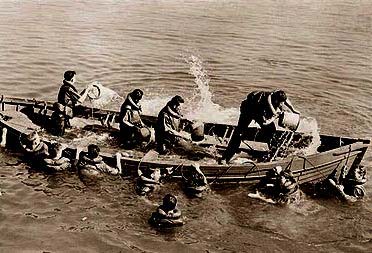


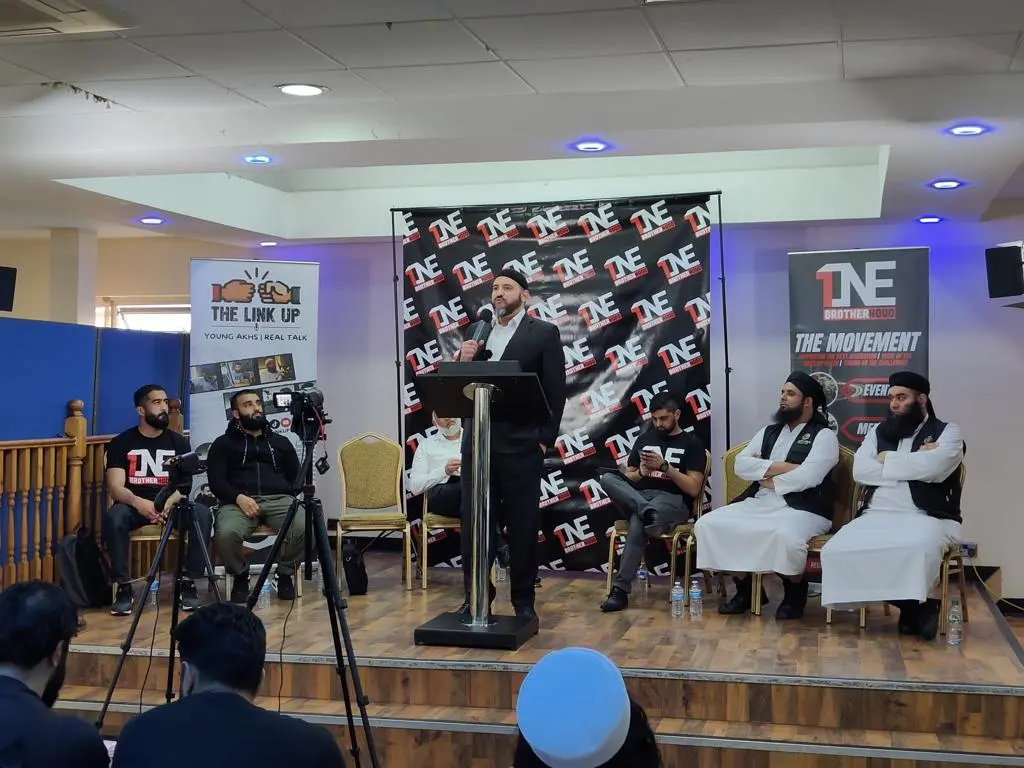
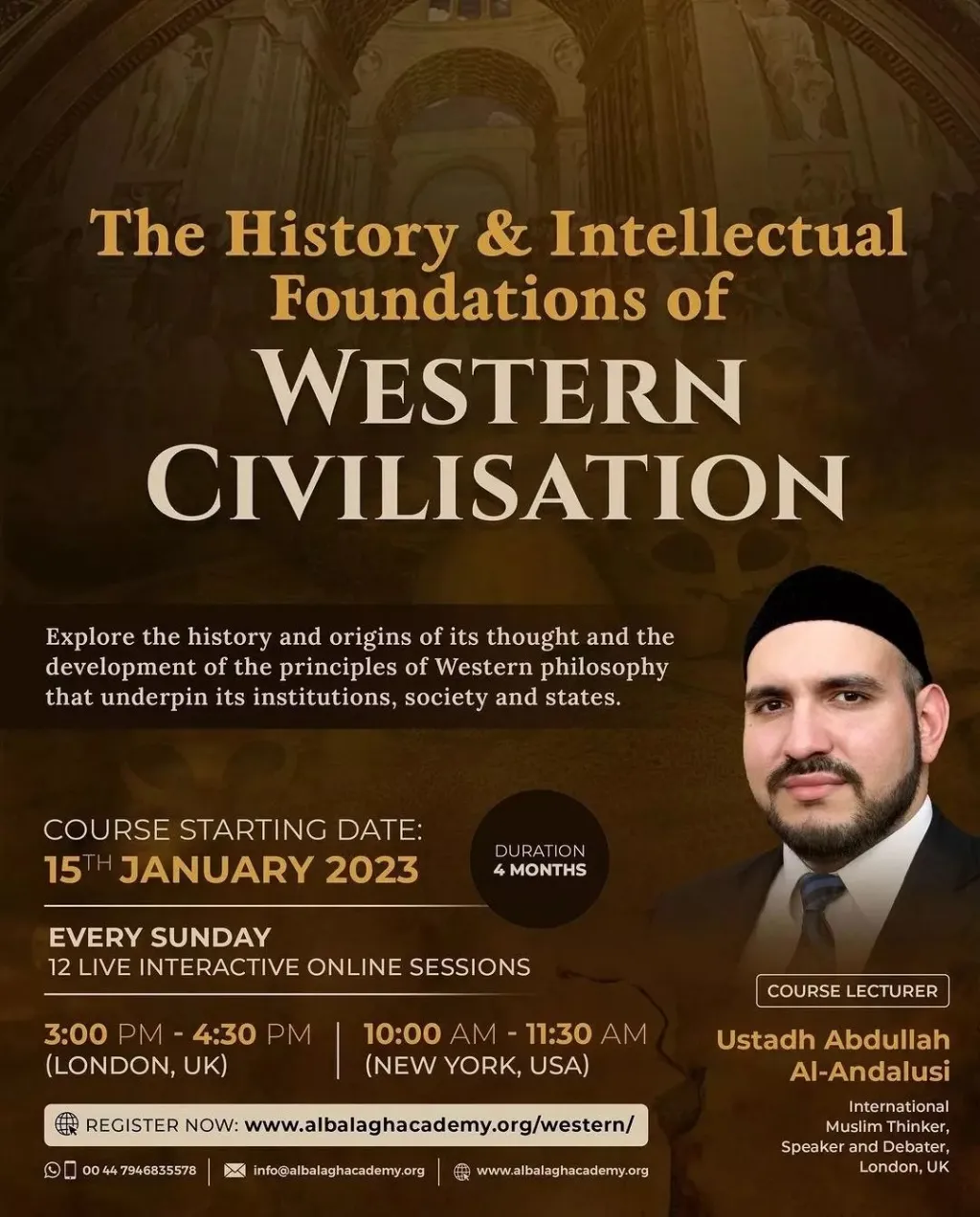
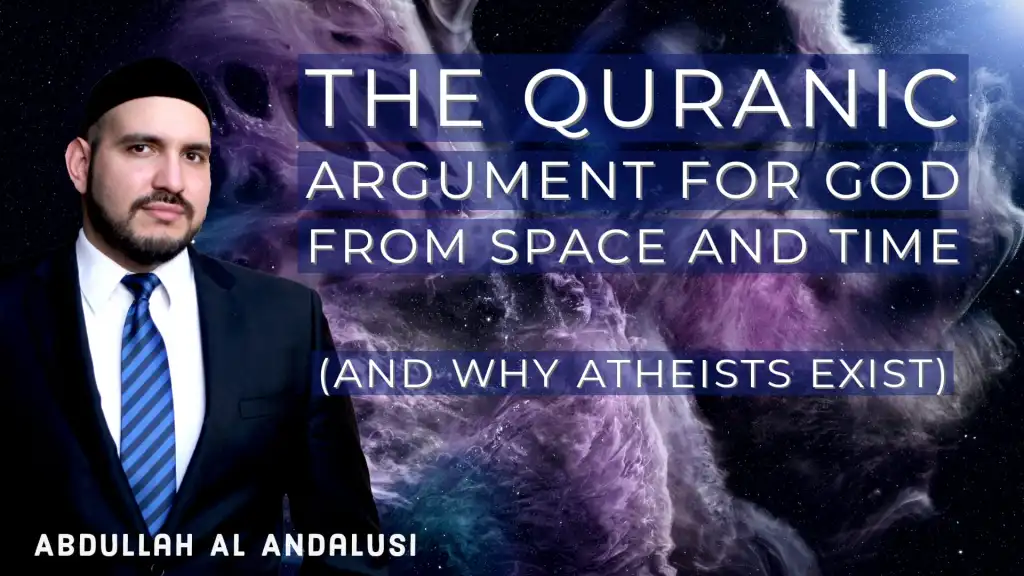
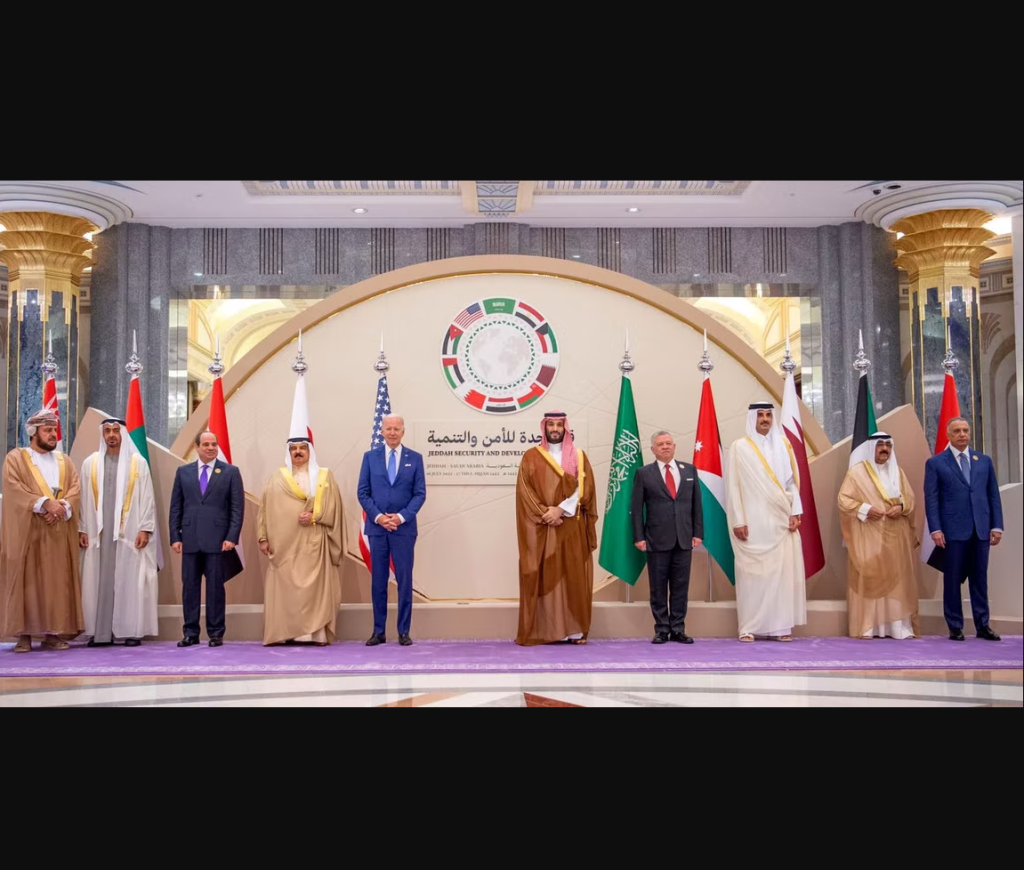
Leave a comment